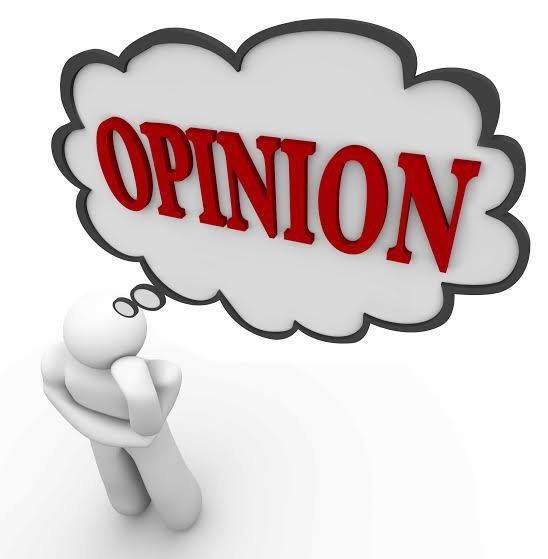By Umar Ardo, Ph.D
The accusations made by Niger’s President Abdourahamane Tchiani against France for its alleged role in fueling insurgencies in Nigeria and the Sahel region are not without merit. Historical evidence and geopolitical realities provide compelling support for such accusations, particularly in the context of France’s track record in Africa and the policies of the Tinubu administration in Nigeria since the military coup in Niger last year. These accusations, while controversial, warrant serious scrutiny and not to be dismissed outright.
2. Historically, France’s involvement in Africa has consistently been tied to securing access to the continent’s vast natural resources. Through a combination of military interventions, covert operations and alliances with local proxies, France has over the years manipulated and even instigated internal conflicts to serve its imperial interests. The Sahel region, rich in uranium, magnesium, gold and other minerals, has been a focal point of French influence. In Africa specifically, France benefited significantly from mining its mineral reserves while the local populations suffer extreme poverty and underdevelopment. Accusations of French support for insurgencies like Boko Haram for the purpose of extracting resources from the Chad basin area therefore align with a broader pattern of destabilization, which creates conditions that justify prolonged military and economic control the region. This duplicity undermines regional stability and creates dependency on French support, all the while serving France’s interests.
3. In truth, the accusation that France has supported Boko Haram insurgents in Nigeria has lingered in the public domain since the insurgency began in 2009. This claim, first advanced by respected academics like Dr. Iyochia Ayu, a former Senate President and Minister, in a widely publicized article over a decade ago, is merely been reinforced by Niger’s current President Tchiani. Such allegations, given their persistence and credibility of their sources, demand careful investigation.
4. Moreover, the unusually close relationship between Nigerian President Bola Tinubu and France, at a time when French West African leaders are severing ties with France amidst accusations of exploitation and destabilization, only serves to further raise germane questions as to its motives. From close personal relationship, bilateral agreements to diplomatic ties, President Tinubu’s alignment with France’s leadership introduces a layer of curiosity that cannot be ignored. Considering France’s well-documented history of fostering instability in resource-rich regions to advance imperialism, the allegations warrant deeper scrutiny.
5. Indeed, the persistence of insurgencies in Nigeria and the Sahel raises more questions about the sources of sophisticated weaponry, training and funding for groups like Boko Haram, ISWAP and now Lakurawan. These groups operate with advanced weapons, including drones, which are not easily accessible to non-state actors. The logical conclusion is that such weapons and resources are either state-supplied or facilitated by illicit global networks linked to powerful arms industrial complexes. France, with its military-industrial ties, diabolical historical record and strategic interests in the region, cannot just be absolved of suspicion. That successive Nigerian governments, including the current Tinubu regime, have failed to address these supply lines effectively, can only give further reason to doubt the sincerity of Nigerian governments counterinsurgency efforts.
6. Besides, as stated above, President Bola Tinubu’s unusually close ties to France, at a time like now, can only lend credence to these accusations. President Tinubu’s alignment with France’s policies, especially in imposing ECOWAS sanctions on Niger following last year’s military coup, and threat to military invasion, is squarely responsible for straining the historic ties between Nigeria and Niger. These policies, including economic sanctions and the cutting off of electricity supplies, have worsened Niger’s economic hardship, reflecting a lack of strategic foresight and creating the impression of prioritizing extra-continental influences over regional solidarity. Niger’s support for Nigeria during the Biafran War contrasts starkly with President Tinubu’s current antagonistic posture, which appears more aligned with French interests than with Nigeria’s historical values of non-interference and African unity.
7. Niger’s accusations against France and the Tinubu administration should thus not be viewed as an indictment of Nigeria as a nation but of specific policies of the Tinubu administration that have deviated from historical precedents of mutual support and respect between the two neighbours. The provocation, actually initiated by the Tinubu regime and naturally seen to be under France’s influence, is what has damaged the diplomatic ties between Nigeria and Niger and undermined Nigeria’s credibility as a regional leader.
8. It is imperative for Nigeria’s leadership to readdress its foreign policies towards its neighbours, and reexamine France’s role in perpetuating instability in African countries. These accusations are no doubt grounded in historical and geopolitical realities that expose the duplicity of France in the Sahel and the detrimental effects of President Tinubu’s policies on Nigeria-Niger relations.
9. The accusations demand a serious reflection, not deflection. It is imperative for Nigeria to revisit its foreign policy priorities, restore trust with its neighbors and confront the external and internal forces that perpetuate insecurity in its territory, and indeed the region. By doing so, Nigeria can reclaim its leadership role in Africa and contribute meaningfully to lasting peace and stability in the Sahel.


